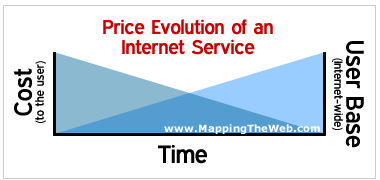 When Barry Bonds hit his record-breaking 756th home run, the world stopped for a moment. The milestone is truly remarkable. Another remarkable consideration was how much the ball was sold for at auction - an astonishing $752,467. Whether this athletic feat can be considered legitimate or not is another story. As we all know, the record has been overshadowed by scandal and allegations of steroid use.
When Barry Bonds hit his record-breaking 756th home run, the world stopped for a moment. The milestone is truly remarkable. Another remarkable consideration was how much the ball was sold for at auction - an astonishing $752,467. Whether this athletic feat can be considered legitimate or not is another story. As we all know, the record has been overshadowed by scandal and allegations of steroid use.
So who paid $752,467 for a frickin baseball? None other than fashion designer Marc Ecko. Why did he pay such a large price for such a small item? Some believe it to be a publicity stunt. I can believe it. But what he plans to do with the ball is even more of a mystery - and you are a part of it.
Ecko created a website, http://www.vote756.com/, that anyone can visit and vote to determine the fate of the baseball. Here are the options (as stated on the site):
A) Bestow it. Give the ball to Cooperstown. The ball that broke Hank Aaron’s career home run record belongs in the Hall of Fame.
B) Brand it. Burn an asterisk into the ball with a branding iron, adding a permanent footnote to the record. Then, send it to Cooperstown.
C) Banish it. Put the ball on a rocket ship and launch it into orbit, a moon shot for the ages. Out of sight, out of mind.
Visitors to the site are highly encouraged to vote, an indirect way of voicing your opinion. So what does this mean? Anyone that visits the site can be a part of sports history. I think that what Ecko is doing is truly the most perfect ending to this ongoing fiasco. Harnessing the power of the Internet and social media, and letting the people decide what to do with the ball is a brilliant concept. Such an idea would not have been possible 20 years ago. Once again, the advent of the Internet has changed the game forever. Oh, and by the way, all voting results will be audited and certified by an independent, third-party auditor, Promosis.
And yes, I voted… but I will not reveal my choice, as this may influence your decision. Having said that, I encourage all readers to visit the site, vote, and be a part of sports history. A chance like this doesn’t come along every day.
Note: Voting ends on September 25th, 2007.

This is not an advertisement.
![]() give out. The service is fairly simple (and similar to Facebook). If you want to check it out, link to my blog or give me a shout-out and I’ll do my best to send you an invitation as soon as possible.
give out. The service is fairly simple (and similar to Facebook). If you want to check it out, link to my blog or give me a shout-out and I’ll do my best to send you an invitation as soon as possible. When Barry Bonds hit his record-breaking 756th home run, the world stopped for a moment. The milestone is truly remarkable. Another remarkable consideration was how much the ball was sold for at auction - an astonishing $752,467. Whether this athletic feat can be considered legitimate or not is another story. As we all know, the record has been overshadowed by scandal and allegations of steroid use.
When Barry Bonds hit his record-breaking 756th home run, the world stopped for a moment. The milestone is truly remarkable. Another remarkable consideration was how much the ball was sold for at auction - an astonishing $752,467. Whether this athletic feat can be considered legitimate or not is another story. As we all know, the record has been overshadowed by scandal and allegations of steroid use.
